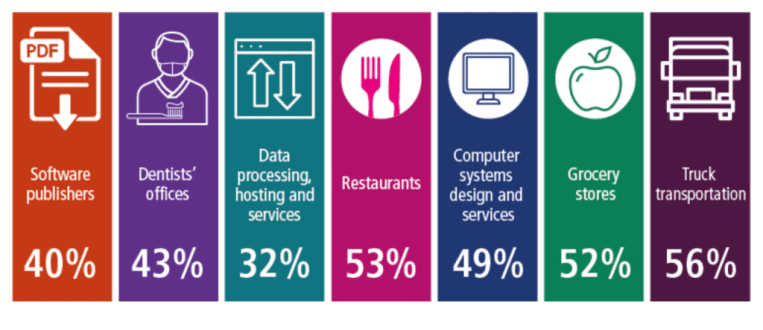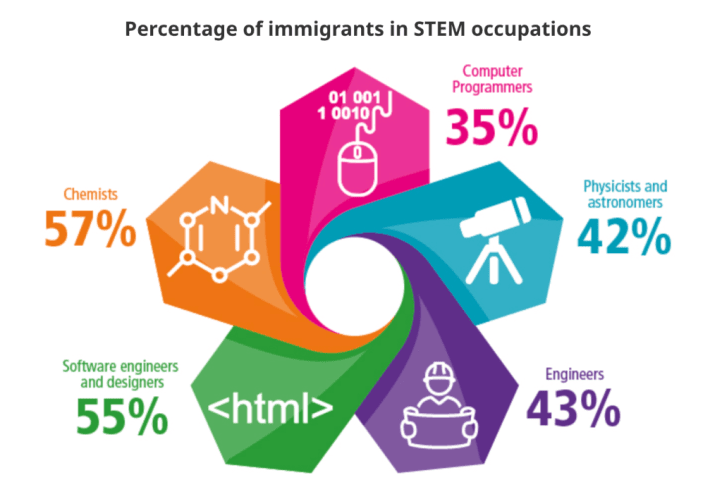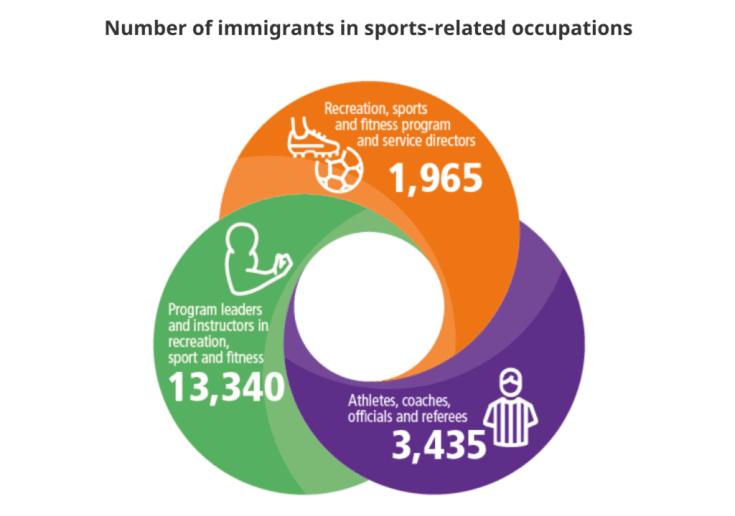Jobs Canada Needs
Jobs Canada Needs: Jobs in Canada Supported by Immigration: Canada’s workforce is undergoing a significant transformation as the country grapples with an aging population and labor shortages across critical sectors.
Immigration is playing a pivotal role in bridging these gaps, with immigrants contributing significantly to the healthcare, transportation, construction, business, food services, science and technology, arts and culture, philanthropy, and sports sectors.
This article explores how immigrants are not just filling job vacancies but also enriching these industries, ensuring Canada’s continued growth and prosperity.
Table of Contents
Healthcare: A Lifeline Sustained by Immigrants

Healthcare is one of Canada’s most vital sectors, employing over 1.9 million people.
Immigrants constitute a cornerstone of this industry, with 1 in 4 workers in healthcare being foreign-born.
They play a crucial role in addressing staff shortages, especially as over 420,000 healthcare workers are expected to retire within the next decade.
Key Contributions:
- Nurses and Care Workers: Immigrants account for 25% of registered nurses and 42% of nurse aides. This is critical as nursing and residential care facilities struggle with staffing challenges.
- Specialized Roles: Immigrants make up 43% of pharmacists, 37% of physicians, 45% of dentists, and an astounding 61% of dental technologists.
- Senior Care: With a growing elderly population, the demand for home health care services is increasing. Immigrants are stepping in to fill this gap, ensuring that quality care remains accessible.
As Canadian healthcare’s demands rise, immigrants will continue to play an indispensable role in maintaining the system’s stability and quality.
Transportation: Keeping Canada Moving
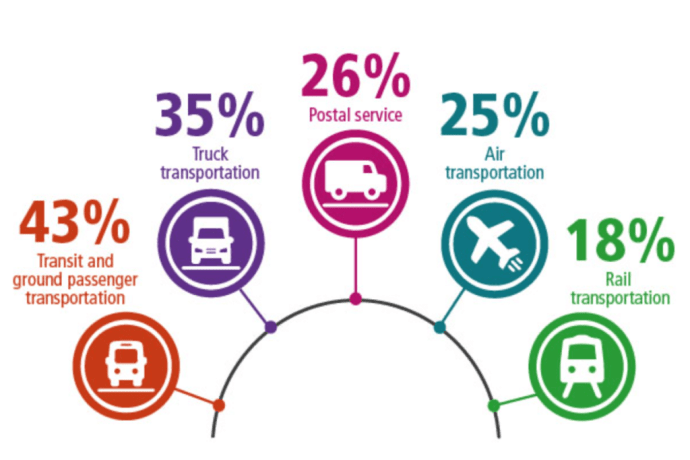
The transportation sector is another critical industry supported heavily by immigrants.
With over 800,000 workers, this sector is essential for ensuring the delivery of goods and services across the country.
However, as more than 25% of transportation workers are over 55 years old, the sector faces a significant retirement wave in the coming decade.
Immigrant Contributions:
- Truck Transportation: Immigrants represent 35% of workers in this field and own 56% of truck transportation businesses, showcasing their entrepreneurial spirit.
- Public Transit and Air Travel: In transit and ground passenger transportation, immigrants make up 43% of the workforce, while 25% are employed in air transportation.
- Postal and Rail Services: Immigrants also account for 26% of postal service workers and 18% of those in rail transportation.
By maintaining Canada’s transportation networks, immigrants ensure the uninterrupted flow of goods and services, underpinning the nation’s economic stability.
Residential Construction: Building Canada’s Future
Canada’s residential construction sector employs over 600,000 workers, addressing the country’s housing challenges.
Immigrants are crucial in meeting the growing demand for skilled labor, particularly as 18% of skilled tradespeople are expected to retire within the next decade.
Contributions to Skilled Trades:
- Architects and Engineers: Immigrants make up 41% of architects and 40% of civil engineers, contributing to innovative housing solutions.
- Construction Managers: 24% of construction managers are immigrants, ensuring projects are completed efficiently and sustainably.
- Tradespeople: Immigrants comprise 20% of roofers, 16% of electricians, 15% of carpenters, and 14% of plumbers, highlighting their diverse skills.
As Canada continues to tackle housing affordability and shortages, immigrants will remain integral to the construction sector’s growth.
Business: Driving Economic Growth
The business sector employs nearly 12.5 million Canadians, with immigrant entrepreneurs and business owners at the forefront of innovation and job creation.
More than 800,000 immigrants are self-employed, and 250,000 of these have paid employees.
Key Statistics:
- Sector Leadership: Immigrants account for 32% of business owners with paid staff, contributing to industries such as healthcare, retail, and professional services.
- Industry-Specific Ownership:
- 53% of restaurant businesses are immigrant-owned.
- 52% of grocery stores are led by immigrant entrepreneurs.
- 40% of software publishing businesses are immigrant-owned.
As seasoned entrepreneurs retire, immigrant business owners are stepping up, ensuring economic dynamism and local job creation across Canada.
Food Services: Feeding a Nation
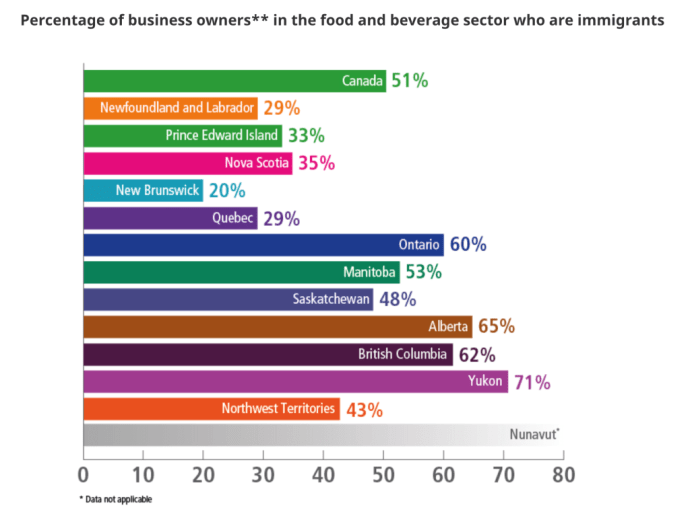
The food services sector is one of Canada’s largest employers, with over 1 million workers.
However, staffing shortages remain a pressing issue, and immigrants are vital in filling these gaps.
Highlights:
- Ownership: More than 51% of food and beverage businesses with paid staff are owned by immigrants, showcasing their entrepreneurial dominance.
- Recent Immigrant Impact: In 2021, over 2,400 recent immigrants owned food and beverage businesses, contributing to the sector’s growth.
- Employment: More than 1 in 4 workers in food services are immigrants, ensuring restaurants and other establishments can meet growing demand.
Immigrants are not just keeping the food services industry afloat but are also driving innovation in culinary experiences across Canada.
Science and Technology: Pioneering Innovation
Canada’s science and technology sector employs 1.5 million workers, with a growing demand for talent to sustain the country’s innovation-driven economy.
Immigrants play a significant role in this high-tech landscape.
Immigrant Contributions:
- STEM Workforce: Immigrants account for 35% of computer programmers, 43% of engineers, and 57% of chemists.
- International Students: Many immigrants begin their journeys as students, with 37% of international students enrolled in STEM programs. These individuals often stay in Canada to contribute to its technological advancements.
- Research and Development: Nearly 37% of workers in scientific research and development are foreign-born.
By fostering innovation and filling skill shortages, immigrants are essential to Canada’s technological and scientific achievements.
Arts and Culture: Enriching Canadian Identity
Canada’s arts and culture sector thrives on its diversity, with immigrants playing a significant role in its growth.
Nearly 100,000 immigrants work in professional and technical roles within the sector.
Key Contributions:
- Independent Artists: Immigrants make up 21% of independent artists, writers, and performers.
- Entrepreneurship: Over 2,000 arts and culture businesses with paid employees are owned by immigrants, driving creativity and economic growth.
From music to literature, immigrants are shaping Canada’s cultural narrative and enhancing its global reputation.
Philanthropy: Giving Back to Communities
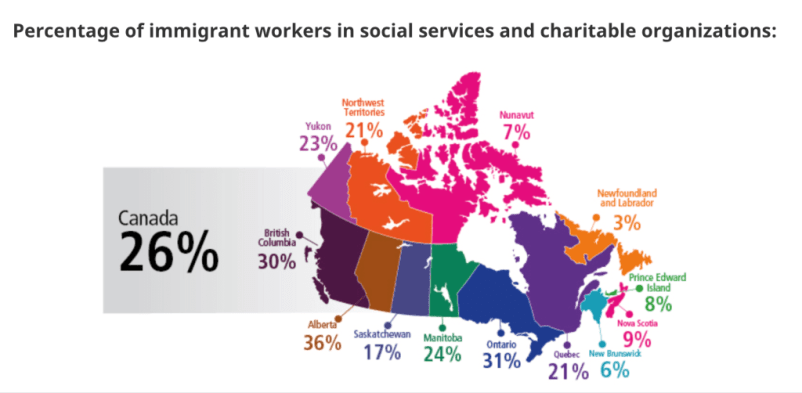
Canada’s charities and non-profits are supported by immigrants who contribute both financially and through volunteer work.
The sector employs about 2.4 million people, with immigrants comprising a significant portion.
Contributions:
- Social Assistance: More than 1 in 4 social assistance workers are foreign-born.
- Volunteering: Nearly 40% of immigrants aged 15 and older volunteer, dedicating an average of 162 hours annually.
- Donations: Immigrants often donate more to charities than Canadian-born citizens, driven by compassion and community spirit.
By supporting charities and non-profits, immigrants help improve the quality of life for all Canadians.
Sports: Building Teams and Champions
Canada’s sports sector is not just about competition; it’s a reflection of the country’s multicultural identity.
Immigrants are integral to this industry, contributing as athletes, coaches, and program leaders.
Key Roles:
- Coaching: Immigrants make up 24% of all sports coaches in Canada.
- Leadership: More than 13,000 immigrants serve as program leaders and instructors in recreation and fitness.
- Representation: Many athletes representing Canada on the international stage are immigrants.
From grassroots initiatives to professional sports, immigrants are fostering talent and promoting inclusivity in Canadian athletics.
Why Immigration is Key to Canada’s Workforce Challenges
As Canada faces an aging population and labor shortages, immigration offers a sustainable solution.
Immigrants bring skills, innovation, and cultural diversity, enriching every sector of the economy.
By addressing critical gaps in healthcare, transportation, construction, and beyond, immigrants are ensuring Canada remains competitive on the global stage.
The Path Forward:
- Policy Support: Canada’s immigration policies must continue to attract skilled workers in high-demand industries.
- Recognition of Credentials: Streamlining the recognition of foreign qualifications will help immigrants integrate faster into the workforce.
- Community Integration: Supporting immigrants through settlement services and community programs will ensure their long-term success.
Immigrants are not just workers; they are entrepreneurs, innovators, and community builders.
Their contributions are shaping Canada’s future, making the country a beacon of opportunity and growth.
In conclusion, immigration is not just a solution to Canada’s workforce challenges—it is a cornerstone of the nation’s identity and prosperity.
As sectors across the economy rely on immigrant talent, Canada must continue to foster an environment where newcomers can thrive.
GFK Immigration
Gboyega Esan RCIC R708591
Phone: +1 (647) 225-0092
#Explore #StudyPermit #CanadaImmigration #PostGraduateOpportunities #GFKImmigration #StayInCanada #Canada #Student #internationalStudent #Study #Studypermit #immigrationcanada #canadaimmigration #immigratecanada #movetocanada #liveincanada #workincanada #studyincanada



